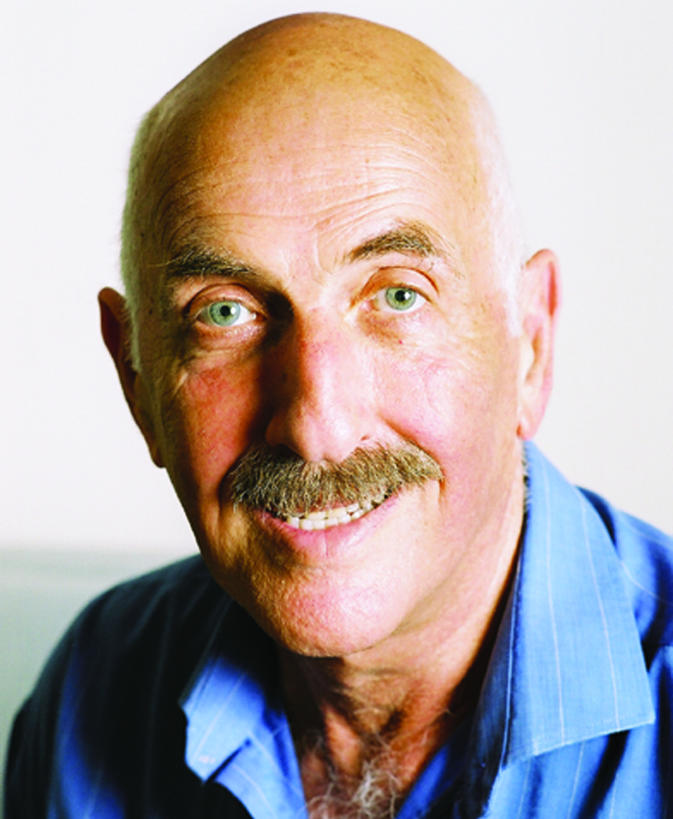Short abstract
Psychiatrist who pioneered research into bisexuality and who invented a sexual orientation grid
Recognising his attraction to both men and women, in 1974 Dr Fritz Klein tried to research bisexuality at the New York Public Library. He found little information. So he placed an advertisement in The Village Voice, a weekly newspaper in New York's Greenwich Village, asking people interested in bisexuality to meet for discussions.
Figure 1.

“I had bisexuals come to my place every week to discuss their own bisexuality as well as bisexuality in general,” he told journalist Sheela Lambert of BiMagazine in an interview weeks before his death. “We met weekly for discussion and it quickly turned into a support group. We had about 15-20 people show up every week.”
From these discussions Klein developed his Klein Sexual Orientation Grid, which considers a person's sexuality in the past, present, and an idealised future, and published it in the Journal of Homosexuality in 1985. It was based on the Kinsey Scale, which rated sexual orientation on a scale of 0 to 6, with 0 being exclusively heterosexual and 6 being exclusively homosexual.
However, Klein's grid considered seven variables (sexual attraction, sexual behaviour, sexual fantasies, emotional preference, social preference, self identification, and heterosexual/homosexual lifestyle) and it recognised that the variables might change over time.
The grid “was a culmination of talking to hundreds of bisexuals in the Bisexual Forum in New York where the question of sexual orientation and bisexuality kept coming up. It became obvious after a while that sexual orientation is more complicated than Kinsey's scale,” he told BiMagazine. He said that his own place on the grid was bi-gay: closer to the gay side than the heterosexual side, although he had had at least two serious relationships with women.
“Bisexuality is a confusing concept in the general population; this also applies to bisexuals themselves. The grid helps define who they are and where they fit on the sexual orientation continuum,” Klein said in an interview with bi.org.au.
Research about bisexuality would help people develop a positive attitude and knowledge about themselves, he said.
In 1978, he published The Bisexual Option, and later Man, His Body, His Sex, edited bisexual anthologies, founded the Journal of Bisexuality, and published a novel, Life, Sex, and the Pursuit of Happiness.
He founded the Bisexual Forum in New York in 1974 and in 1982 the Bisexual Forum in San Diego, California, where he moved to avoid New York's stress and for better weather and a more relaxed lifestyle. He also founded the American Institute of Bisexuality (www.bisexual.org) and organised conferences for and about bisexuals.
“He was amazing, courageous, a real pioneer, a very generous, really healthy person, tolerant and bright, who said there was more to people than their sexual selection. He was uncloseted at a time when that was very rare,” said sexuality expert Helene Sloan, professor emerita of health and human nutrition at Brooklyn College of the City University of New York. She said that among his contributions was to show that “bisexual” was not the same as homosexual, as many people assumed at the time, and that there was a spectrum of human sexuality.
Fritz Klein was born into an Orthodox Jewish family in Vienna in 1932 and for the first six years of his life he spoke German. Then his family fled Nazi anti-Semitism and settled in New York. He received a bachelor's degree from Yeshiva University in New York in 1953 and an MBA from Columbia University in 1955.
He later realised that he would prefer to study medicine, especially psychiatry. Too old to be accepted at US medical schools, he applied to the University of Bern, brushed up his childhood German, and graduated in 1971. In medical school his emphasis was on sex therapy. He completed a residency in psychiatry at New York Medical College in 1974.
After several years in New York, where he founded the Bisexual Forum, he moved to San Diego and founded the Bisexual Forum there. Klein was also a clinical instructor at the University of California, San Diego.
He travelled widely, loved the theatre, played a few small parts in Lysistrata in Sydney, Australia, and became active in the non-profit Diversionary Theater of San Diego, which presents plays relevant to the lesbian, gay, and transgender community of San Diego and provides a home for San Diego's theatre professionals.
Dan Kirsch, executive director of the theatre, told the BMJ that Klein owned the office building in which the theatre is located and was a generous contributor. “He was vivacious, curious about life and people, widely travelled, and he left us a gift in his will as an endowment, the first endowment we've received. It's significant for us.”
Klein had been recovering well after surgery for pancreatic cancer but died suddenly from a heart attack at the home he shared with his partner, Tom Reise. According to Klein's wishes, his body was donated to science. Also according to Klein's wishes, Reise said, “plans are being made for a big party in San Diego to celebrate his life.”
Fritz Klein, founder of the American Institute of Bisexuality (b Vienna, Austria, 1932; q Bern University, Switzerland, 1971), died from a heart attack on 24 May 2006


